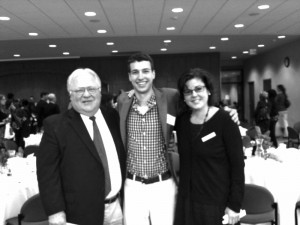By Tracy Lum
Editor-in-Chief
Musical artists Ke$ha and B.o.B. will headline this year’s fall concert on Oct. 29. Presented by the Bucknell Concert Committee, the performance will be held at 8 p.m. in Gerhard Fieldhouse.
When selecting the performers for each semester’s concert, the committee tries to choose artists that will be popular with students on campus and that will generate buzz.
“Both Ke$ha and B.O.B., while very different performers, complement each other nicely, and will put on a very upbeat and lively performance with hit singles that everyone will be singing along to,” said concert committee chair Chelsea Burghoff ’11.
Ke$ha, whose real name is Kesha Rose Sebert, is known for her sing-song rap style in singles like “Tik Tok” and “Your Love is My Drug.”
Hip-hop artist B.o.B., also known as Bobby Ray Simmons, Jr., is known for songs such as “Airplanes” and “Magic.”
The committee is excited to bring big-name performers to campus and anticipates a large turnout.
“We have been wanting to get Ke$ha for a while due to the popularity of her first album throughout the last semester,” Sonali Basak ’12, assistant concert committee chair, said. “B.o.B. is also a name we’ve all heard around campus more and more. We wanted something new and upcoming for the campus community.”
Because the concert will take place over Homecoming and Halloween weekend, the committee believes that the event will keep everyone on campus and draw an even larger audience. “The concert should add a great deal to the Homecoming excitement, and we expect this year’s turnout to be spectacular,” Basak said.
This year the concert will be held in Gerhard Fieldhouse instead of Sojka Pavilion. “This will be a great new location for our concert, and will provide much more floor space for all attendees to get up close to the stage,” Burghoff said. The venue will also allow audience members more space to spread out and dance.
Tickets will be available for purchase from the Campus Box Office starting Tuesday, Sept. 7 at noon for students ($25) and all others ($30) beginning Friday, Sept. 10 at noon.
Info Box:
Friday, October 29th
Doors 7pm
Show starts 8pm
Tickets $25 for Bucknell students: beginning Tuesday, Sept 7th, noon
Tickets $30 (all others) beginning Friday, Sept 10th at noon
